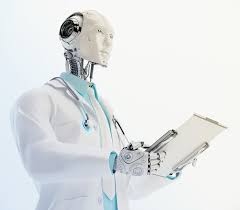Source:- techrepublic.com
Karen Roby talks with Columbia professor Sameer Maskey about the lack of trained AI talent and why he believes underserved communities may be the solution to the problem.
Nearly every industry is using artificial intelligence in one way or another to improve business outcomes. AI holds great promise as new and exciting applications are discovered, but there is a catch. There aren’t enough trained AI engineers capable of carrying out the work. Karen Roby talks with Sameer Maskey, a professor of AI at Columbia University and founder of Fusemachines, about the shortage and what can be done. The following is an edited transcript of the interview.
Sameer: The requirement on the number of engineers from the AI perspective is in the millions, and what you have is a couple hundred thousand, some say it’s 300,000 some say it’s 600,000, but what’s required is multiple millions of numbers, engineers who know AI and who can build AI products, build algorithms, implement algorithms and so forth. So that’s the general numbers that are out there talking about shortages.
What you can see is the foundations of AI is a lot of machine learning. So a lot of the AI products that get built these days, they are built using machine learning algorithms, and machine learning is a lot of math. It’s a lot of parameters, statistics, calculus, linear algebra, and so forth. And unlike learning a new programming language like Python, which you can sort of pick up in a couple of months, at least the basic versions of it, there’s no shortcut of learning math, right?
And especially in undergrad computer science especially, it has been the case that a lot of focus is in programming algorithms and so forth, but less so in math. It’s starting to change as there are more and more computer science students who want to learn AI and they realize there’s a lot of math that you need to know before you start initial learning. So there’s this catch up across the whole globe around all the computer science engineers on the knowledge and math to be able to do machine learning. And I think that’s part of the reason this lack of talent and machine learning engineering because they need to know math.
Karen: So how do we get more people trained in this special field?
Sameer: There are a couple of things that can be done and is being done as well. It’s from the education perspective. For example, Columbia has started data science institute where the mix of program math and applications to build products is being trained to students and more and more universities who are opening these data science programs and masters of data science and so forth. So one of the things that can be done and is being done is having more and more of these data science and AI programs with this very specific focus on training engineers, our students, on these.
The other portion that we are starting to see is these sort of mini-programs where it might not be a two year master’s program but a one year program to sort of do hyper-focused courses on machine learning, deep learning, and computer vision, natural language processing, just focused on these courses for them to learn here. So this kind of a mix of full-on master’s programs and data science, these probably one-year programs, educational programs for training the talent up would be good to create more talent, to build more AI applications.
Karen: AI engineers can make a really nice living while working in a really exciting field. So are the students that you teach, do they seem really enthusiastic about their futures?
Sameer: Students are super excited about learning AI because they see a lot of opportunities right now, and as you pointed out, there’s tremendous growth. There was a PWC report recently where the AI contribution to our GDP is going to be in trillions of dollars over the next decade and so forth. So everybody can see that pretty much every company is starting to think about either how to build something with the AI or how to apply AI in their products or how to use AI to improve internal processes and so forth. So to do any of this, you need this skill set. And everybody also knows there are not enough engineers, so the demand for AI engineers is through the roof.
And because of the supply and demand not matching this, the engineers are also getting paid quite a bit. And so the students, they see their fellow students making quite a bit of money on salaries after they get trained up on AI, so everybody’s really excited to, “I want to learn more on machine learning and I want to get into the workforce and build AI products.” So they’re super excited.
Karen: At Fusemachines, you guys feel that the answer to the talent shortage is through democratizing AI training. So talk a little bit about why you’re looking to the underserved communities.
Sameer: There’s quite a bit of talent in underserved communities in the US and around the world who may not have gotten the right kind of exposure or right kind of experience or that kind of learning environment to really flourish. And we are very keen on finding those talents in like poor counties in the US, poor cities in the US, in the inner cities of the US, and underserved communities around the world, from the developing world and so forth. And you really find these gems of the talent and give them an opportunity to learn AI with the right kind of framework, right kind of learning tool and right kind of teachers to enable them to get to a point where they’re equally good as other engineers from the best schools. And if we do that, then I think we’ll be able to scale faster on being able to train engineers in the volumes that we require.

 Starting: 1st of Every Month
Starting: 1st of Every Month  +91 8409492687 |
+91 8409492687 |  Contact@DevOpsSchool.com
Contact@DevOpsSchool.com

